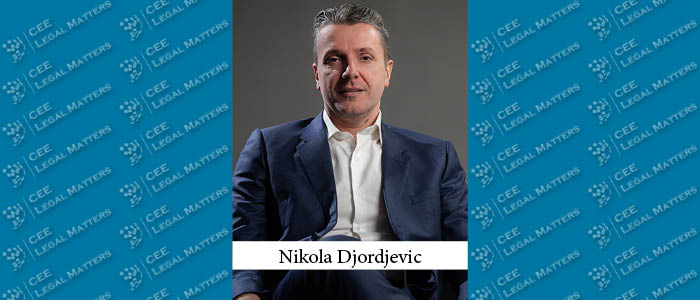At the end of January, the Ministry of Finance invited representatives of business associations to submit their views regarding the possibility of a reform aiming to increase the progressivity of salary taxation. The Ministry emphasized that the framework for the change refers only to salary tax and not to contributions for mandatory social insurance, as well as that any proposals should produce effects that are de minimis budget neutral, both at the level of the entire economy and at the level of local governments.
Responding to the invitation, AmCham, FIC, Naled, and PKS prepared a joint position. The associations expressed the view that the increase in progressivity by changing only the salary tax, in conditions of revenue neutrality for the budget of the Republic of Serbia, could produce various negative effects on business, including increasing pressure on the disposable income of employees, on the cost of employers wages, as well as on the competitiveness of employers in Serbia, or to the growth of wages in the service sector whose services are exported, which would lead to less competitiveness of Serbia as a hub for export-oriented services.
In their conclusion, the associations recommend continuing the policy of increasing the non-taxable amount of wages or introducing a tax credit for dependent family members, in order to further reduce the burden on below-average wages, without exposing the rest of the economy to the risks highlighted by the associations.
However the associations are right when they state that "currently we do not have clearly defined reasons and goals for the introduction of additional progressivity of salary taxation, as well as indicators that could be used to monitor the fulfillment of such goals, which makes it difficult to choose adequate measures and taxation policies to be applied", it seems that the associations missed the opportunity to propose consideration of certain changes in the individual income taxes.
First of all, employers could take advantage to advocate for the equalization of the way of taxation of natural persons they engage. The Fiscal Council is also in favor of such a solution, and it would certainly make sense for compensation to natural persons to be taxed in the same way, with salary tax, regardless of whether someone is engaged on the basis of an employment contract, a service contract, a temporary or casual contract jobs or on the basis of the contract on the rights and obligations of a director. This would certainly simplify the calculation of taxes and contributions on these remunerations by employers.
In addition, when talking about the income of natural persons who provide IT services, currently those who are employed are subject to salary tax, and those who are entrepreneurs are subject to the tax on income from self-employment (whereby they are subject to the independence test in which case if it turns out that they are not independent, are subject to the tax on other income), and those who work directly with foreign companies also pay tax on other income, but with a different method of calculating the base than non-independent entrepreneurs.
By equalizing the taxation of employed IT workers, non-independent entrepreneurs, and those who work directly for foreign companies, as well as by equalizing the treatment of employment contracts, work contracts, contracts on temporary and occasional jobs, and contracts on the rights and obligations of directors, it would be achieved that from a tax point of view, from the point of view of a natural person, the method of engagement does not affect the tax liability of that natural person. And by providing appropriate incentives such as incentives for hiring new employees or incentives for research and development prescribed in connection with corporate income tax, employment would be encouraged from the point of view of employers.
Finally, there is another aspect that was taken into account in the analysis conducted by the associations, which could potentially be part of the recommendations to the Ministry of Finance. It is the annual personal income tax, which the associations took into account in order to prove that the taxation of wages is already progressive. However, a small number of taxpayers are subject to the annual personal income tax. If the coverage of those to whom this tax applies would be expanded, the possibility would exist to provide additional incentives in connection with this tax, even potentially returning part of the salary tax paid during the year. For example, in the event that the taxpayer, during the year, invests funds in increasing the energy efficiency of the real estate in which he/she lives. The state and local governments anyway have programs for approving funds for these purposes. In this way, natural persons would be encouraged to do it themselves, and even in the event that due to refunds lead to slightly lower budget incomes, the expenditures foreseen in the budgets for such purposes would also be reduced. At the same time, the tax return for the annual personal income tax and the construction and use permits are submitted/obtained electronically, so by connecting the e-system of the Tax Administration and the Ministry of Construction i.e. local bodies, proof of the investment of funds for these purposes would be provided in a simple way.
Of course, as the associations correctly note in their analysis, any such proposal is flawed in the sense that the Ministry has not provided its own analysis of this issue, so the stated ideas must be taken with a grain of salt. But it certainly could have been indicated to the Ministry what it could take into account and what kind of analyses it should prepare before making a decision on the further progressiveness of the salary tax.
By Nikola Djordjevic, Partner, JPM & Partners


